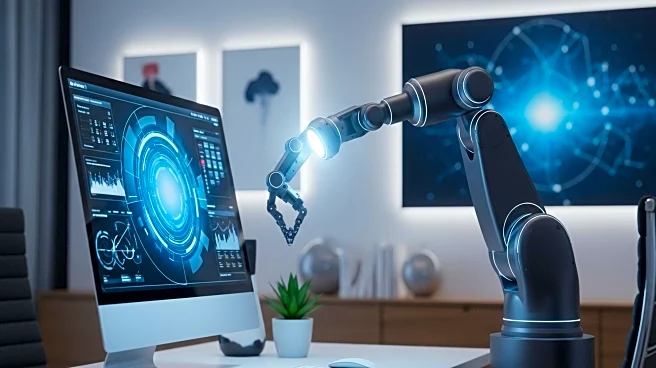What's Happening?
Research suggests that nearly a million jobs in London could be affected by AI, particularly those involving repetitive or automated tasks. The study highlights roles such as telemarketers, bookkeepers, and data entry specialists as being at risk. Companies like Amazon, JP Morgan, Microsoft, and Ford predict significant changes in the workforce due to AI, with Ford's CEO suggesting that AI could replace half of all white-collar workers in the U.S. However, experts argue that AI will enhance productivity rather than eliminate jobs, with sectors like tech leading the way in AI adoption. The NHS is using AI to improve efficiency in drug dispensing, demonstrating AI's potential to complement rather than replace human roles.
Why It's Important?
The potential impact of AI on jobs is crucial as it could lead to significant shifts in the labor market, affecting various industries and demographics. While AI offers opportunities for increased efficiency and innovation, it also poses challenges related to job displacement and gender disparity. Women, who occupy many roles vulnerable to AI, may face higher risks, necessitating strategies to mitigate these effects. The integration of AI in sectors like healthcare highlights its ability to improve service delivery and patient outcomes, emphasizing the need for upskilling workers to adapt to new roles. The broader adoption of AI could redefine job functions and require businesses to rethink their workforce strategies.
Beyond the Headlines
The ethical implications of AI's impact on jobs are significant, as companies must consider how to implement AI without exacerbating gender disparities or job losses. The focus on upskilling and retraining workers is essential to ensure that AI complements human roles rather than replacing them. Additionally, the use of AI in healthcare demonstrates its potential to enhance service delivery and improve patient safety, highlighting the importance of integrating AI responsibly. As AI continues to evolve, businesses and policymakers must address these ethical considerations to ensure equitable and sustainable workforce transformations.










